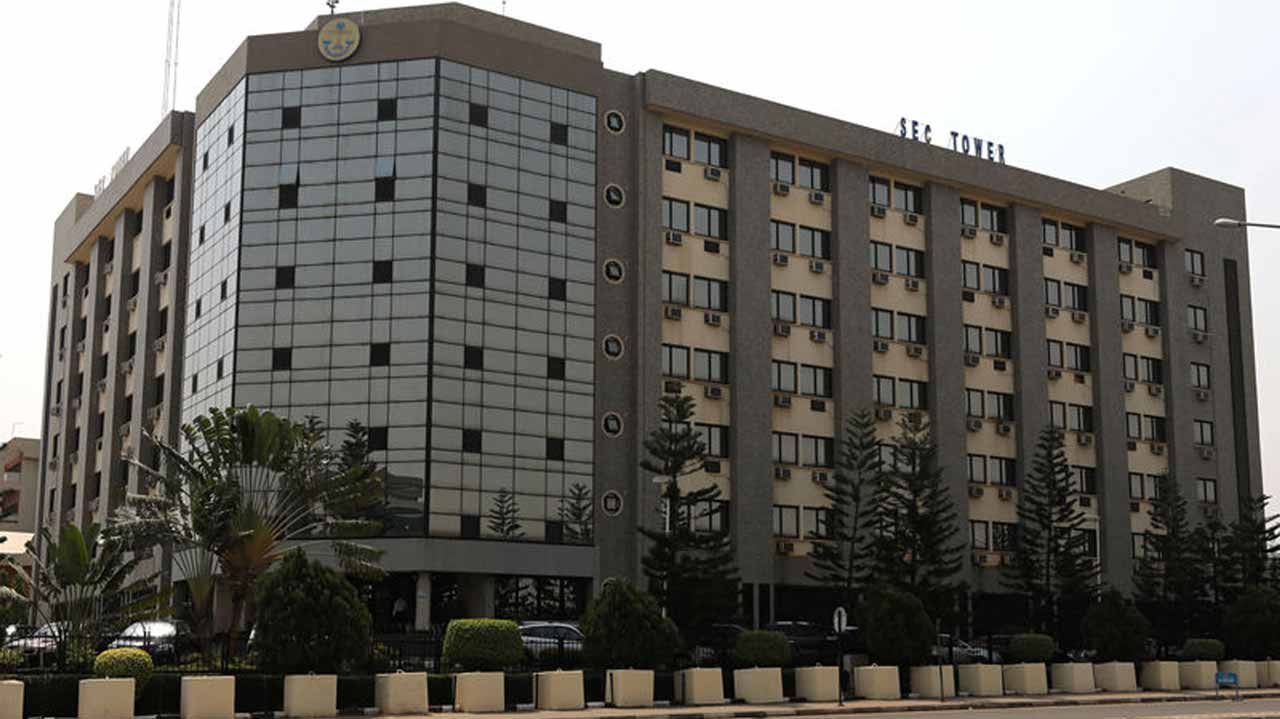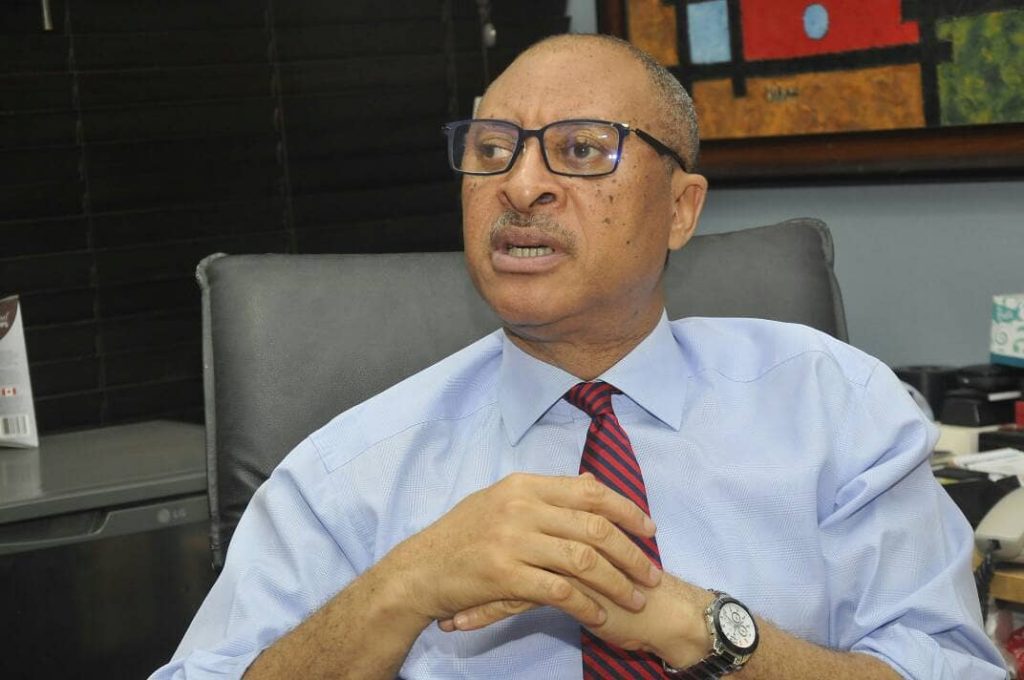
The outfit disclosed that the N170b unclaimed dividends have finally been remitted to the Unclaimed Dividend Trust Fund (UDTF), which is being managed by the Commission and the Debt Management Office (DMO).
The remittance was, however, done despite efforts by shareholders to restrain the Federal Government from taking over the management of the fund.
At a virtual post-Capital Market Committee (CMC) meeting held in Lagos recently, the Director-General of the SEC, Lamido Yuguda, categorically stated that unclaimed dividends have finally been moved to the UDTF, and are now managed by both institutions to the astonishment of the shareholders and other market participants despite efforts by shareholders to restrain the decision.
“Unclaimed dividends have gone into the Unclaimed Dividend Trust Fund and are now managed by the SEC and DMO. The SEC is no longer the only institution that has data on unclaimed dividends. It will remain there until the owners come forward to claim them. We still have cases of multiple subscriptions, but we are working very hard on solutions to tackle them, especially in the area of unclaimed dividends,” he said.
However, Yuguda doused shareholders’ fears by stating that the monies would be released to the owners or beneficiaries with appropriate documents proving ownership.
Much as the disclosure did not constitute cherry news for shareholders, stakeholders have continued to generate controversy, in addition to describing the UDTF as an illegal entity, insisting that the monies must be ploughed back into the companies that declared the dividends, and failure to do so would attract court injunctions.
Dividends are the distributable earnings of a company. The earnings, which are not distributed, constitute retained earnings. Dividends payout and retained earnings vary according to companies. The decision on whether or not to declare a dividend rests in the hands of the board of directors of a company. However, when declared, it becomes a liability on the company, according to the Companies and Allied Matters Act (CAMA) 1990.
If dividends remain unclaimed for whatever reason, they become a disincentive to investment and may erode investors’ confidence in the country’s capital market.
The issue of unclaimed dividends has remained on the front burner of public discourse amongst shareholders, the regulator, and the government since 2017 when the issue of establishing an Unclaimed Dividend Trust Fund to remit unclaimed dividends was first proposed in the capital market.
When a shareholder for any reason does not claim a dividend, it gives rise to the issue of unclaimed dividends. The CAMA 1990 (revised 2020) refers to “unclaimed dividends” as dividends not claimed within six months after a declaration, and are returned to the company, from where the investors can make claims up till, but not later than 12 years. The Federal Government had also proclaimed that any dividend not claimed after 12 years becomes statute-barred and will be forfeited.
Indeed, the incidence of unclaimed dividends has over the years remained one of the perennial issues that have continued to rear their heads in Nigeria’s capital market. There has been a lot of worry among regulatory authorities, company executives, registrars of companies, and the general public regarding the rising incidence of unclaimed dividends currently put at N170b.
For Professor of Finance, University of Nigeria Nsukka, Chuke Nwude, the outcry against the government’s move is because it has not been exemplary in the management of public funds, just as it is a wrong decision to keep such “financial windfall” in government’s care.
“It is a bad decision. The best thing to do is to establish a trust fund that will be managed by an independent body other than the government in such a way that the claimants to the unclaimed dividends can collect their money whenever they are alerted.”
Corroborating this view, a professor of economics at the Olabisi Onabanjo University, Ago-Iwoye, Sheriffdeen Tella, also stated that unclaimed dividend belongs to the company involved, and not the government, adding that dividend is purely a private sector affair, and the government should only provide an enabling environment for the real sector to survive and operate.

But for the President of the Proactive Shareholders Association, Taiwo Oderinde, the SEC needs to return the monies to the companies that declared it for reinvestment or face court injunctions.
“I believe in what CAMA says. After 12 years, the money should be given back to the company to do more business. So, to me, the UDTF is illegal and I believe we should go to court and seek justice on behalf of the owners of the money. That is, the shareholders.”
On his part, the President of the New Dimension Shareholders Association, Patrick Ajudua, described the UDTF as a disincentive to investment, stating that shareholders will continue to condemn its establishment.
“UDTF is against the interest of shareholders; it is a vehicle through, which unclaimed dividends will go unaccounted and be subjected to abuse. Rather, we have advocated that such money be returned to companies that declared them to generate more returns to shareholders,” Ajudua.
He continued: “We have challenged the legality of such fund; the composition of the trustees; the role of the DMO and the custody of the fund. We will continue to make our reasons prevail and to exploit available legal means to seek justice, as well as ensure that our unclaimed dividend is not misappropriated against the wish of the beneficiaries.”
In 2020, the Federal Government, apparently in dire need of cheap funds to finance its huge fiscal deficit and to mitigate further economic crisis arising from the COVID-19 pandemic had, in a section of the 2020 Finance Act, proposed the establishment of a trust fund where unclaimed dividends would be ploughed into.
At a 2020 Finance Bill webinar organised by KPMG, in collaboration with the Federal Ministry of Finance, Budget, and National Planning, the Finance Minister, Zainab Ahmed, had said that the funds would be owed as perpetual debt to shareholders.
Swiftly, shareholders, economists, and securities experts reacted angrily to the Federal Government’s plan, and urged President Muhammadu Buhari to withhold assent to the bill until the contentious section was expunged, insisting that the unclaimed dividends should be reinvested in companies as retained earnings to grow their businesses and generate employment,.
They stressed that the provision conflicts with the previous one in the Companies and Allied Matters Act (CAMA) that guarantees a 12-year statute of limitation on unclaimed dividends, after which the fund would be ploughed back into the company that declared it.
For instance, Palm Wealth Shareholders Association (PWSA) had instituted a case against the Federal Government at a Federal High Court of Nigeria, Abeokuta Division, Ogun State in 2020, asking the court to void the plan to take over unclaimed dividends.
The shareholders’ group was seeking among other things, an order “for the enforcement of the applicants’ fundamental rights to acquire and own immovable and moveable personal property, and an order restraining the Federal Government, that is, the respondents from calling for, or transferring the unclaimed dividends of the applicants in public quoted companies to the Unclaimed Funds Trust Fund.
“A declaration of the court that Part XV of the Finance Act 2020 calling for, or transferring unclaimed dividends of the applicants in public quoted companies to the Unclaimed Funds Trust Fund by the respondents without any constitutional grounds is unconstitutional, null and void and of no moment as it violates the applicants’ fundamental rights and a declaration of the court that the applicants are entitled to claim their dividends without coercion, stampede, and intimidation from the respondents,” they added.
They also argued that if a trust fund must be created, it should be under the supervision of a leading private sector group, as against under the Federal Government.
While hinging their opposition to the present development on the claim that most assets managed by government officials in the past were either grossly abused or misappropriated, they also contended that the takeover of unclaimed dividends by the government was not necessary since market regulators, through various initiatives, were taking steps to ensure that unclaimed dividends were reduced to the barest minimum.
The investors suggested that instead of creating a trust fund for unclaimed dividends, the government should simplify letters of administration for deceased families, and make the process of claims less cumbersome for investors.
In the view of the Independent Shareholders Association, creating a trust fund is a disincentive to investment, as previous trust funds were marred by allegations of corruption.
“The government has forgotten that it has taken over 30 per cent tax, from companies that generate the dividends on profit before tax, and 10 per cent from the individual investors through withholding tax. What moral right do you have to take funds that do not belong to you? In Section 39(f) of the Finance Bill, it is stated that all unclaimed dividends that have remained unclaimed for a period of not less than 12 years shall lapse into government revenue, and shall be transferred from the unclaimed dividends trust fund to the federal account as federal revenue.”
Also aligning with those that maintain that the government having a grip on unclaimed dividends constitutes a disincentive to investment, they appealed to the National Assembly to reject and expunge the section of the bill because, from all indications, “the trust fund was designed to rob shareholders of their hard-earned money.”
The value of unclaimed dividends as released by the SEC was N2.09b in 1999 and rose from N5.1 billion to N6b between 2002 and 2004. In 2005, the unclaimed dividends increased to N6.4b. At the end of 2008, it stood at N17.9b. Within a period of nine years, that is between 1999 and 2008, the figure rose by 756.46 per cent, resulting in a yearly average of 84.05 per cent.

It rose steadily to N80b in 2014. At the end of September 2015, the unclaimed dividend stood at N90b.
By the end of the 2016 financial year, the value had increased to N100b in 2017, and N120b in 2018. As of 2019, it stood at N158.44b.
At the recent CMC press briefing, the SEC DG Yuguda disclosed that the figure stands at N170b as of December 2020, despite measures put in place by the commission to check the incidence in the local bourse.
Findings have shown that over 300, 000 shareholders of 10 blue-chip firms, despite a need for additional income, have failed to claim their dividends in the last five years due to apathy arising from inflation and bureaucratic processes.
Topping the list are FBN Holdings, Nigerian Breweries, UAC, Nestle Plc, Dangote Cement, Total Plc, Unilever, Okomu Oil, and Cutix.
Investigations revealed that the preponderance of unclaimed dividends is due to multiple subscriptions by investors.
Multiple subscriptions happen when investors subscribe to the same public offer with multiple names. Many investors are no more interested in regularising their shareholding accounts for conversion to the e-Dividend mode of payment.
A cursory look at the unclaimed dividend list of companies quoted on the Nigerian Exchange Limited (NGX) across sectors, since the global financial crisis of 2009 showed that Total Plc’s list has 9, 750 shareholders covering 50 pages in its unclaimed dividend list, while FBN Holdings list is made up of 255, 486 shareholders.
For Nestle Plc, its unclaimed dividend list has names of 17, 206 shareholders, while Nigerian Breweries Plc, has 100, 000 shareholders on its list. Dangote Cement’s unclaimed dividends outstanding as of December 31, 2020, stood at N4.0b compared to N3.5b as of December 31, 2019.
Unilever has 7, 050 shareholders covering 282 pages, while Okomu Oil and Cutix constitute 4, 873, and 7457 shareholders covering 237 and 208 pages respectively.
UAC’s unclaimed dividend list stood at 3, 331. For Julius Berger and Dangote Sugar Refinery, 2,173 and 10, 279 shareholders made up their unclaimed dividends’ list. Guinness Nigeria Plc., and GlaxoSmithKline list is made up of 45, 324 and 2, 835 shareholders respectively.
Dematerialisation, which is the conversion of a share certificate from physical to electronic form, and credited to the investor’s Central Securities Clearing System Limited (CSCS) account, has not helped much, as the failure of registrars to fully adopt the electronic processing technology is another disincentive to market investors.
The move has, instead of boosting transaction processes, heightened delay, accompanied by irregularities that also encourage fraud, with attendant loss of share certificates, delay in receipt of dividend warrants, a notice of meetings, and companies’ annual reports.
For an economist, Prof. Pat Utomi, since the government remains the last resort and ultimate guardian in the society, especially in funds management despite leakages in the nation’s governance structure, there is a need to adopt a legislation that would guide how government deploys the money to avoid reckless and wasteful appropriation.
“Ultimately, it is still the government that is in charge, and that oversees. The last resort is the government when it comes to the issue of unclaimed dividends. What we need in Nigeria is an actual legislation that guides how the government uses those things.
“In a state like New York, the amount of money that comes in every year from abandoned property, and dividends is the second or third biggest source of revenue for the government, and there are laws that govern it. We need legislations that will guide how the government will use these funds to avoid reckless appropriation,” he said, adding, “if there is anything that should control our common pool, it should be the government. The government is more entitled to providing the umbrella to use those funds. It is just that the people are worried because the history of government managing funds has been problematic in Nigeria.”
He added: “We need a piece of legislation that will suggest a governing body for those monies and when it is not claimed, there should be a time limit after which it should go into a government treasury for appropriation. This would make it become a new source of revenue for the government.”
The Chief Executive Officer of Cowry Asset Management, Johnson Chukwu, said that the transfer of unclaimed dividends was codified in the Finance Act, which stipulates that a trust account should be managed by the DMO and the SEC.
He pointed out that unclaimed dividends are beneficial to shareholders, as they would allow them to receive both the principal amount and income that accrue therefrom.
“Interest will accrue on the fund and if any shareholder succeeds in confirming ownership of the dividend will get, not only the principal amount but also income that accrues to it as provided by the Finance Act.
“It is not all ‘tale of woes.’ Before, shareholders got only the principal amount, but now, they will also receive interest on it. The capital market community, both the SEC, NSE, and operators have taken large measures to eliminate this, but now that dividends are created in such a way that they go directly into the account without dividends’ warrant, it is expected that the unclaimed dividends will reduce.
“This means that with the elimination of dividends’ warrant in the capital market, there is no likelihood that a lot more funds would flow into the unclaimed accounts. This trust fund was legislated and put up in the Finance Act and signed into law. To reverse it, the segment of that law has to be repealed.”
Chukwu also allayed fears of a possible government hijack of the fund, stating that if the government has to borrow money from there, it will do it through an instrument, and cannot default in payment.






